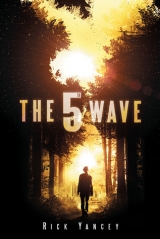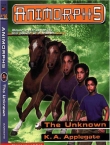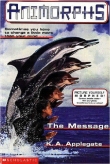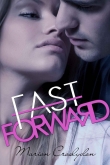
Текст книги "The 5th Wave"
Автор книги: Rick Yancey
Жанры:
Подростковая литература
,сообщить о нарушении
Текущая страница: 4 (всего у книги 27 страниц)


THERE ARE THREE OF THEM, not in a clump like city folk, but spaced out in the median strip. The first one is an older guy, around my dad’s age, I guess. Wearing blue jeans and a Bengals warm-up. Facedown, arms outstretched. He was shot in the back of the head.
The second, about a dozen feet away, is a young woman, a little older than I am and dressed in a pair of men’s pajama pants and Victoria’s Secret tee. A streak of purple in her short-cropped hair. A skull ring on her left index finger. Black nail polish, badly chipped. And a bullet hole in the back of her head.
Another few feet and there’s the third. A kid around eleven or twelve. Brand-new white basketball high-tops. Black sweatshirt. Hard to tell what his face used to look like.
I leave the kid and go back to the woman. Kneel in the tall brown grass beside her. Touch her pale neck. Still warm.
Oh no. No, no, no.
I trot back to the first guy. Kneel. Touch the palm of his outstretched hand. Look over at the bloody hole between his ears. Shiny. Still wet.
I freeze. Behind me, the road. In front of me, more road. To my right, trees. To my left, more trees. Clumps of cars on the southbound lane, the nearest grouping about a hundred feet away. Something tells me to look up. Straight up.
A fleck of dull gray against the backdrop of dazzling autumnal blue.
Motionless.
Hello, Cassie. My name is Mr. Drone. Nice to meet you!
I stand up, and when I stand up—the moment I stand up; if I had stayed frozen there a millisecond longer, Mr. Bengals and I would be sporting matching holes—something slams into my leg, a hot punch just above my knee that knocks me off balance, sending me sprawling backward onto my butt.
I didn’t hear the shot. There was the cool wind in the grass and my own hot breath under the rag and the blood rushing in my ears—that’s all there was before the bullet struck.
Silencer.
That makes sense. Of course they’d use silencers. And now I have the perfect name for them: Silencers. A name that fits the job description.
Something takes over when you’re facing death. The front part of your brain lets go, gives up control to the oldest part of you, the part that takes care of your heartbeat and breathing and the blinking of your eyes. The part nature built first to keep your ass alive. The part that stretches time like a gigantic piece of toffee, making a second seem like an hour and a minute longer than a summer afternoon.
I lunge forward for my rifle—I had dropped the M16 when the round punched home—and the ground in front of me explodes, showering me with shredded grass and hunks of dirt and gravel.
Okay, forget the M16.
I yank the Luger from my waistband and do a sort of running hop—or a hopping run—toward the closest car. There isn’t much pain—although my guess is that we’re going to get very intimate later—but I can feel the blood soaking into my jeans by the time I reach the car, an older model Buick sedan.
The rear windshield shatters as I dive down. I scoot on my back till I’m all the way under the car. I’m not a big girl by any stretch, but it’s a tight fit, no room to roll over, no way to turn if he shows up on the left side.
Cornered.
Smart, Cassie, real smart. Straight As last semester? Honor roll? Riiiiiight.
You should have stayed in your little stretch of woods in your little tent with your little books and your cute little mementos. At least when they came for you, there’d be room to run.
The minutes spin out. I lie on my back and bleed onto the cold concrete. Rolling my head to the right, to the left, raising it a half inch to look past my feet toward the back of the car. Where the hell is he? What’s taking so long? Then it hits me:
He’s using a high-powered sniper rifle. Has to be. Which means he could have been over a half mile away when he shot me.
Which also means I have more time than I first thought. Time to come up with something besides a blubbery, desperate, disjointed prayer.
Make him go away. Make him be quick. Let me live. Let him end it…
Shaking uncontrollably. I’m sweating; I’m freezing cold.
You’re going into shock. Think, Cassie.
Think.
It’s what we’re made for. It’s what got us here. It’s the reason I have this car to hide under. We are human.
And humans think. They plan. They dream, and then they make the dream real.
Make it real, Cassie.
Unless he drops down, he won’t be able to get to me. And when he drops down…when he dips his head to look at me…when he reaches in to grab my ankle and drag me out…
No. He’s too smart for that. He’s going to assume I’m armed. He wouldn’t risk it. Not that Silencers care whether they live or die…or do they care? Do Silencers know fear? They don’t love life—I’ve seen enough to prove that. But do they love their own lives more than they love taking someone else’s?
Time stretches out. A minute’s longer than a season. What’s taking him so damn long?
It’s an either/or world now. Either he’s coming to finish it or he isn’t. But he has to finish it, doesn’t he? Isn’t that the reason he’s here? Isn’t that the whole friggin’ point?
Either/or: Either I run—or hop or crawl or roll—or I stay under this car and bleed to death. If I risk escape, it’s a turkey shoot. I won’t make it two feet. If I stay, same result, only more painful, more fearful, and much, much slower.
Black stars blossom and dance in front of my eyes. I can’t get enough air into my lungs.
I reach up with my left hand and yank the cloth from my face.
The cloth.
Cassie, you’re an idiot.
I set the gun down beside me. That’s the hardest part—making myself let go of the gun.
I lift my leg, slide the rag beneath it. I can’t lift my head to see what I’m doing. I stare past the black, blossoming stars at the grimy guts of the Buick as I pull the two ends together, cinch them tight, as tight as I can, and fumble with the knot. I reach down and explore the wound with my fingertips. It’s still bleeding, but a trickle compared to the bubbling gusher I had before tying off the tourniquet.
I pick up the gun. Better. My eyesight clears a little, and I don’t feel quite so cold. I shift a couple of inches to the left; I don’t like lying in my own blood.
Where is he? He’s had plenty of time to finish this…
Unless he is finished.
That brings me up short. For a few seconds, I totally forget to breathe.
He’s not coming. He’s not coming because he doesn’t need to come. He knows you won’t dare come out, and if you don’t come out and run, you won’t make it. He knows you’ll starve or bleed to death or die of dehydration.
He knows what you know: Run = die. Stay = die.
Time for him to move on to the next one.
If there is a next one.
If I’m not the last one.
Come on, Cassie! From seven billion to just one in five months? You’re not the last, and even if you are the last human being on Earth—especially if you are—you can’t let it end this way. Trapped under a goddamned Buick, bleeding until all the blood is gone—is this how humanity waves good-bye?
Hell no.


THE 1ST WAVE took out half a million people.
The 2nd Wave put that number to shame.
In case you don’t know, we live on a restless planet. The continents sit on slabs of rock, called tectonic plates, and those plates float on a sea of molten lava. They’re constantly scraping and rubbing and pushing against one another, creating enormous pressure. Over time the pressure builds and builds, until the plates slip, releasing huge amounts of energy in the form of earthquakes. If one of those quakes happens along one of the fault lines that ring every continent, the shock wave produces a superwave called a tsunami.
Over 40 percent of the world’s population lives within sixty miles of a coastline. That’s three billion people.
All the Others had to do was make it rain.
Take a metal rod twice as tall as the Empire State Building and three times as heavy. Position it over one of these fault lines. Drop it from the upper atmosphere. You don’t need any propulsion or guidance system; just let it fall. Thanks to gravity, by the time it reaches the surface, it’s traveling twelve miles per second, twenty times faster than a speeding bullet.
It hits the surface with a force one billion times greater than the bomb dropped on Hiroshima.
Bye-bye, New York. Bye, Sydney. Good-bye, California, Washington, Oregon, Alaska, British Columbia. So long, Eastern Seaboard.
Japan, Hong Kong, London, Rome, Rio.
Nice to know you. Hope you enjoyed your stay!
The 1st Wave was over in seconds.
The 2nd Wave lasted a little longer. About a day.
The 3rd Wave? That took a little longer—twelve weeks. Twelve weeks to kill…well, Dad figured 97 percent of those of us unlucky enough to have survived the first two waves.
Ninety-seven percent of four billion? You do the math.
That’s when the Alien Empire descended in their flying saucers and started blasting away, right? When the peoples of the Earth united under one banner to play David versus Goliath. Our tanks against your ray guns. Bring it on!
We weren’t that lucky.
And they weren’t that stupid.
How do you waste nearly four billion people in three months?
Birds.
How many birds are there in the world? Wanna guess? A million? A billion? How about over three hundred billion? That’s about seventy-five birds for each man, woman, and child still alive after the first two waves.
There are thousands of species of bird on every continent. And birds don’t recognize borders. They also crap a lot. They crap five or six times a day. That’s over a trillion little missiles raining down each day, every day.
You couldn’t invent a more efficient delivery system for a virus that has a 97 percent kill rate.
My father thought they must have taken something like Ebola Zaire and genetically altered it. Ebola can’t spread through the air. But change a single protein and you can make it airborne, like the flu. The virus takes up residence in your lungs. You get a bad cough. Fever. Your head starts to hurt. Hurt bad. You start spitting up little drops of virus-laden blood. The bug moves into your liver, your kidneys, your brain. You’re packing a billion of them now. You’ve become a viral bomb. And when you explode, you blast everyone around you with the virus. They call it bleeding out. Like rats fleeing a sinking ship, the virus erupts out of every opening. Your mouth, your nose, your ears, your ass, even your eyes. You literally cry tears of blood.
We had different names for it. The Red Death or the Blood Plague. The Pestilence. The Red Tsunami. The Fourth Horseman. Whatever you wanted to call it, after three months, ninety-seven out of every hundred people were dead.
That’s a lot of bloody tears.
Time was flowing in reverse. The 1st Wave knocked us back to the eighteenth century. The next two slammed us into the Neolithic.
We were hunter-gatherers again. Nomads. Bottom of the pyramid.
But we weren’t ready to give up hope. Not yet.
There were still enough of us left to fight back.
We couldn’t take them head-on, but we could fight a guerilla war. We could go all asymmetrical on their alien asses. We had enough guns and ammo and even some transport that survived the 1st Wave. Our militaries had been decimated, but there were still functional units on every continent. There were bunkers and caves and underground bases where we could hide for years. You be America, alien invaders, and we’ll be Vietnam.
And the Others go, Yeah, okay, right.
We thought they had thrown everything at us—or at least the worst, because it was hard to imagine anything worse than the Red Death. Those of us who survived the 3rd Wave—the ones with a natural immunity to the disease—hunkered down and stocked up and waited for the People in Charge to tell us what to do. We knew somebody had to be in charge, because occasionally a fighter jet would scream across the sky and we heard what sounded like gun battles in the distance and the rumble of troop carriers just over the horizon.
I guess my family was luckier than most. The Fourth Horseman rode off with my mom, but Dad, Sammy, and I survived. Dad boasted about our superior genes. Not something you’d normally do, brag on top of an Everest of nearly seven billion dead people. Dad was just being Dad, trying to put the best spin he could on the eve of human extinction.
Most cities and towns were abandoned in the wake of the Red Tsunami. There was no electricity, no plumbing, the shops and stores had long since been looted of anything valuable. Raw sewage was an inch deep on some streets. Fires from summer lightning storms were common.
Then there was the problem of the bodies.
As in, they were everywhere. Houses, shelters, hospitals, apartments, office buildings, schools, churches and synagogues, and warehouses.
There’s a tipping point when the sheer volume of death overwhelms you. You can’t bury or burn the bodies fast enough. That summer of the Pestilence was brutally hot, and the stench of rotting flesh hung in the air like an invisible, noxious fog. We soaked strips of cloth in perfume and tied them over our mouths and noses, and by the end of the day the reek had soaked into the material and all you could do was sit there and gag.
Until—funny thing—you got used to it.
We waited out the 3rd Wave barricaded inside our house. Partly because there was a quarantine. Partly because some pretty whacked-out people roamed the streets, breaking into houses and setting fires, the whole murder, rape, and pillaging thing. Partly because we were scared out of our minds waiting for what might come next.
But mostly because Dad didn’t want to leave Mom. She was too sick to travel, and he couldn’t bring himself to abandon her.
She told him to go. Leave her behind. She was going to die anyway. It wasn’t about her anymore. It was about me and Sammy. About keeping us safe. About the future and hanging on to the hope that tomorrow would be better than today.
Dad didn’t argue. But he didn’t leave her, either. He waited for the inevitable, keeping her as comfortable as possible, and looked at maps and made lists and gathered supplies. This was around the time the whole book-hoarding, we-have-to-rebuild-civilization kick started. On nights when the sky wasn’t totally blanketed in smoke, we went into the backyard and took turns with my old telescope, watching the mothership sail majestically across the backdrop of the Milky Way. The stars were brighter now, brilliantly bright, without our man-made lights to dim them.
“What are they waiting for?” I would ask him. I was still expecting—like everybody else—the saucers and the mechanical walkers and the laser cannons. “Why don’t they just get it over with?”
And Daddy would shake his head. “I don’t know, pumpkin,” he would say. “Maybe it is over. Maybe the goal isn’t to kill all of us, just wean us down to a manageable number.”
“And then what? What do they want?”
“I think the better question is what they need,” he said gently, as if he were breaking some really bad news. “They’re being very careful, you know.”
“Careful?”
“To not damage it more than absolutely necessary. It’s the reason they’re here, Cassie. They need the Earth.”
“But not us,” I whispered. I was about to lose it—again. For about the trillionth time.
He put his hand on my shoulder—for about the trillionth time—and said, “Well, we had our shot. And we weren’t handling our inheritance very well. I bet if we could somehow go back and interview the dinosaurs before the asteroid struck…”
That’s when I punched him as hard as I could. Ran inside.
I don’t know which is worse, inside or outside. Outside you feel totally exposed, constantly watched, naked beneath the naked sky. But inside it’s perpetual twilight. Boarded-up windows that block out the sun during the day. Candles at night, but we’re running low on candles, can’t spare more than one per room, and deep shadows lurk in once-familiar corners.
“What is it, Cassie?” Sammy. Five. Adorable. Big brown teddy-bear eyes, clutching the other member of the family with big brown eyes, the stuffed one I now have stowed in the bottom of my backpack.
“Why are you crying?”
Seeing my tears got his started.
I brushed past him, headed for the room of the sixteen-year-old human dinosaur, Cassiopeia Sullivanus extinctus. Then I went back to him. I couldn’t leave him crying like that. We’d gotten pretty tight since Mom got sick. Nearly every night bad dreams chased him into my room, and he’d crawl in bed with me and press his face against my chest, and sometimes he forgot and called me Mommy.
“Did you see them, Cassie? Are they coming?”
“No, kiddo,” I said, wiping away his tears. “No one’s coming.”
Not yet.


MOM DIED ON A TUESDAY.
Dad buried her in the backyard, in the rose bed. She had asked for that before she died. At the height of the Pestilence, when hundreds were dying every day, most of the bodies were hauled to the outskirts and burned. Dying towns were ringed by the constantly smoldering bonfires of the dead.
He told me to stay with Sammy. Sammy, who’d gone zombielike on us, shuffling around, mouth hanging open or sucking his thumb like he was two again, with this blankness in his teddy-bear eyes. Just a few months ago, Mom was pushing him on a swing, taking him to karate classes, washing his hair, dancing with him to his favorite song. Now she was wrapped in a white sheet and riding on his daddy’s shoulder into the backyard.
I saw Dad through the kitchen window kneeling by the shallow grave. His head was down. Shoulders jerking. I’d never seen him lose it, not once, since the Arrival. Things kept getting worse, and just when you thought they couldn’t get any worse, they got even worse, but Dad never freaked. Even when Mom started showing the first signs of infection, he stayed calm, especially in front of her. He didn’t talk about what was happening outside the barricaded doors and windows. He laid wet cloths over her forehead. He bathed her, changed her, fed her. Not once did I see him cry in front of her. While some people were shooting themselves and hanging themselves and swallowing handfuls of pills and jumping from high places, Dad pushed back against the darkness.
He sang to her and repeated stupid jokes she’d heard a thousand times, and he lied. He lied the way a parent lies to you, the good lie that helps you go to sleep.
“Heard another plane today. Sounded like a fighter. Means some of our stuff must have made it through.”
“Your fever’s down a bit, and your eyes look clearer today. Maybe this isn’t it. Might just be your garden-variety flu.”
In the final hours, wiping away her bloody tears.
Holding her while she barfed up the black, viral stew her stomach had become.
Bringing me and Sammy into the room to say good-bye.
“It’s all right,” she told Sammy. “Everything is going to be all right.”
To me she said, “He needs you now, Cassie. Take care of him. Take care of your father.”
I told her she was going to get better. Some people did. They got sick, and then suddenly the virus let go. Nobody understood why. Maybe it decided it didn’t like the way you tasted. And I didn’t say she was going to get better to ease her fear. I really believed it. I had to believe it.
“You’re all they have,” Mom said. Her last words to me.
The mind was the last thing to go, washed away in the red waters of the Tsunami. The virus took total control. Some people went into a frenzy as it boiled their brains. They punched, clawed, kicked, bit. Like the virus that needed us also hated us and couldn’t wait to get rid of us.
My mother looked at my dad and didn’t know him. Didn’t know where she was. Who she was. What was happening to her. There was this, like, permanent, creepy smile, cracked lips pulled back from bleeding gums, her teeth stained with blood. Sounds came out of her mouth, but they weren’t words. The place in her brain that made words was packed with virus, and the virus didn’t know language—it knew only how to make more of itself.
And then my mother died in a fury of jerks and gargled screams, her uninvited guests rocketing out of every orifice, because she was done, they’d used her up, time to turn off the lights and find a new home.
Dad bathed her one last time. Combed her hair. Scrubbed the dried blood from her teeth. When he came to tell me she was gone, he was calm. He didn’t lose it. He held me while I lost it.
Now I was watching him through the kitchen window. Kneeling beside her in the rose bed, thinking no one could see him, my father let go of the rope he’d been clinging to, loosened the line that had kept him steady all that time while everyone around him went into free fall.
I made sure Sammy was okay and went outside. I sat next to him. Put my hand on his shoulder. The last time I’d touched my father, it was a lot harder and with my fist. I didn’t say anything, and he didn’t, either, not for a long time.
He slipped something into my hand. Mom’s wedding ring. He said she’d want me to have it.
“We’re leaving, Cassie. Tomorrow morning.”
I nodded. I knew she was the only reason we hadn’t left yet. The delicate stems on the roses bobbed and swayed, as if echoing my nod. “Where are we going?”
“Away.” He looked around, and his eyes were wide and frightened. “It isn’t safe anymore.”
Duh, I thought. When was it ever?
“Wright-Patterson Air Force Base is just over a hundred miles from here. If we push and the weather stays good, we can be there in five or six days.”
“And then what?” The Others had conditioned us to think this way: Okay, this, and then what? I looked to my father to tell me. He was the smartest man I knew. If he didn’t have an answer, there was no one who did. I sure didn’t. And I sure wanted him to. I needed him to.
He shook his head like he didn’t understand the question.
“What’s at Wright-Patterson?” I asked.
“I don’t know that anything’s there.” He tried out a smile and grimaced, like smiling hurt.
“Then why are we going?”
“Because we can’t stay here,” he said through gritted teeth. “And if we can’t stay here, we have to go somewhere. If there’s anything like a government left at all…”
He shook his head. He hadn’t come outside for this. He had come outside to bury his wife.
“Go inside, Cassie.”
“I’ll help you.”
“I don’t need your help.”
“She’s my mother. I loved her, too. Please let me help.” I was crying again. He didn’t see. He wasn’t looking at me, and he wasn’t looking at Mom. He wasn’t looking at anything, really. There was, like, this black hole where the world used to be, and we were both falling toward it. What could we hold on to? I pulled his hand off Mom’s body and pressed it against my cheek and told him I loved him and that Mom loved him and that everything would be okay, and the black hole lost a little of its strength.
“Go inside, Cassie,” he said gently. “Sammy needs you more than she does.”
I went inside. Sammy was sitting on the floor in his room, playing with his X-wing starfighter, destroying the Death Star. “Shroooooom, shroooooom. I’m going in, Red One!”
And outside, my father knelt in the freshly turned earth. Brown dirt, red rose, gray sky, white sheet.








